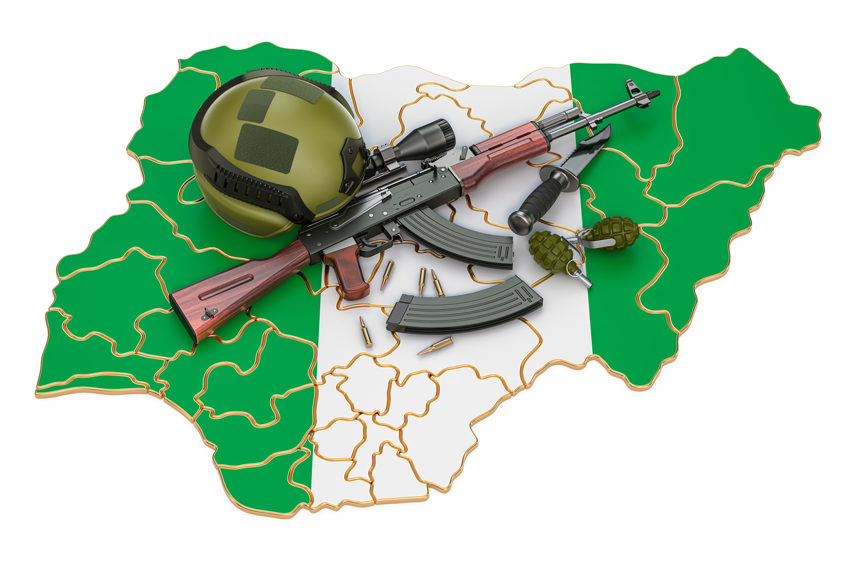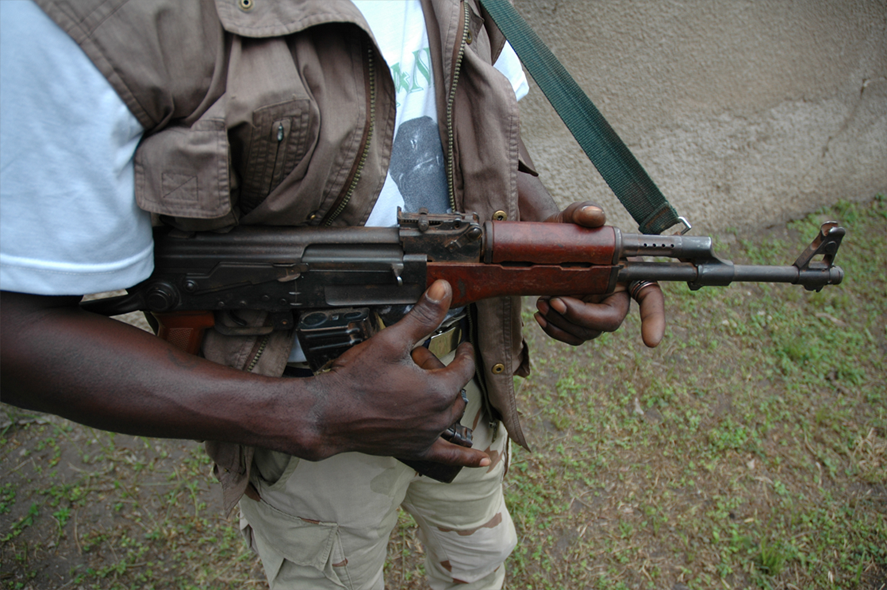
Nikita Bohra
Posted On : Sep 1 2020
Boko Haram – Nigeria’s bleeding civil war
Boko Haram’s violence—including the kidnapping of 276 schoolgirls in Borno State, Nigeria, in April 2014—brought international attention and condemnation.

Boko Haram, is a Nigeria-based group that seeks to overthrow the current Nigerian Government and replace it with a regime based on Islamic law. It is popularly known in Nigerian and Western media as “Boko Haram,” which means “Western education is forbidden” (the word boko is a holdover from the colonial English word for book). The group, which has existed in various forms since the late 1990s, suffered setbacks in July 2009 when clashes with Nigerian Government forces led to the deaths of hundreds of its members, including former leader Muhammad Yusuf.
Poverty and unemployment, poor parental upbringing, and neglect of children also underpin young people's vulnerability to falling prey to violent extremism. Boko Haram has leveraged this vulnerability to deepen their process of recruitment and radicalization, especially in northern Nigeria.
Boko Haram’s violence—including the kidnapping of 276 schoolgirls in Borno State, Nigeria, in April 2014—brought international attention and condemnation and in February 2015 provoked a large regional CT offensive against the group that displaced it from the majority of its strongholds in Nigeria. Nonetheless, Boko Haram remains resilient, conducting attacks in neighboring Cameroon, Chad, Niger, as well as Nigeria, emphasizing the threat it poses to Western and regional interests.
The US State Department designated Boko Haram a Foreign Terrorist Organization in November 2013. Boko Haram’s attacks increased in frequency and magnitude, killing and injuring many. The attacks occurred primarily in Nigeria’s northeast, north-central, and central states and typically focused on police, military, and government targets, as well as Christian churches and schools and Muslim individuals who were critical of the group. Boko Haram fighters have slaughtered civilians in villages and towns, abducted thousands of people, forcibly marrying off women and girls to their fighters, and conducted mass-casualty terrorist attacks against mosques, markets, and camps for internally displaced persons (IDPs).
On August 26, 2011, the group struck its first high-profile international target within Nigeria when a suicide bomber crashed a car into the United Nations building in Abuja and detonated an explosive, which killed at least 23 people and injured more than 100 others. One of Boko Haram’s deadliest attacks occurred on January 20, 2012, when more than 185 people lost their lives after group members launched coordinated attacks in the city of Kano, in Kano state, targeting police stations and government offices.
A splinter faction of the original Boko Haram was active until 2021, when ISWAP killed its leader, absorbed its territory, and relegated its members to remote islands in Lake Chad. ISWAP has since established control of northeastern Nigeria and parts of Niger. Following the reported death of Boko Haram leader Abubakar Shekau in June during a clash with fighters of the ISWAP breakaway faction, both groups continued fighting in 2022.

ISWAP claimed responsibility for an attack on a prison in Kuje, 40 kilometers from Abuja, the capital. About 900 inmates were freed during the attack, including over 60 Boko Haram members, though authorities said some were recaptured. Security analysts highlighted the involvement of Ansaru, a rising Al Qaeda-backed splinter faction of Boko Haram, in the attack. In August, a leaked memo to President Muhammadu Buhari from the Kaduna State governor warned that Ansaru had formed a permanent operational base in Kaduna State near the Federal Capital Territory and was consolidating its grip on local communities in the state by running a parallel government.
ISWAP was also linked to a March attack on a Kaduna-bound train from Abuja. Eight people were killed and 72 kidnapped during the attack. By October, all kidnapped victims regained their freedom under different circumstances.
In Borno State, the epicenter of the Boko Haram conflict, the government continued to shut down camps for internally displaced persons in Maiduguri, the state capital. The closures cut off aid for thousands of displaced persons and compelled them to leave the camps without consultation, adequate information, or sustainable alternatives to ensure their safety and ability to support themselves in communities where they were forced to resettle or return.
No Comments Added




















